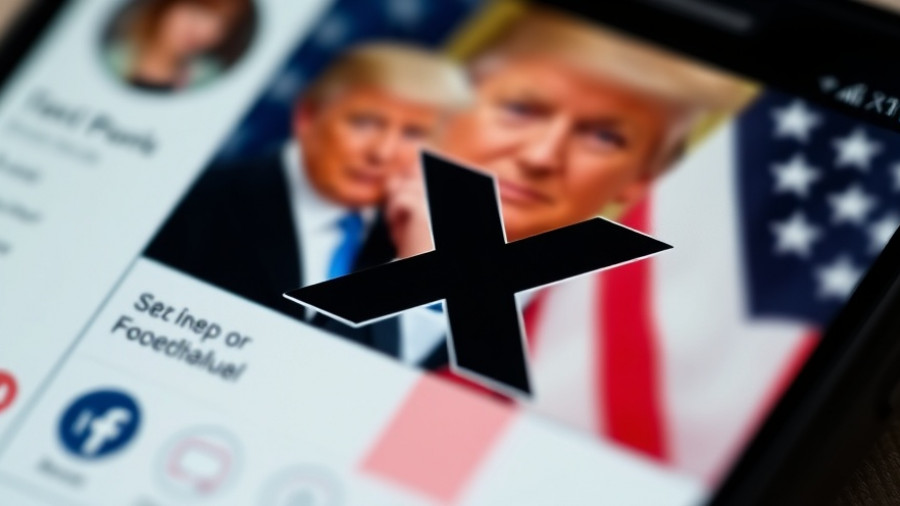
Understanding the Legal Dispute: X Corp vs. Tech Giants
In a provocative ruling, a federal judge has ordered that the lawsuit filed by Elon Musk's X Corp and its artificial intelligence arm, xAI, against tech titans Apple and OpenAI remain in Fort Worth, Texas. Judge Mark Pittman delivered his decision with a sharp sense of irony, suggesting that given the minimal connections these companies have to Texas, they might consider relocating their headquarters to Fort Worth to justify the venue choice.
The Antitrust Allegations Against Apple and OpenAI
The lawsuit, launched in August, accuses Apple and OpenAI of engaging in an “anticompetitive scheme” to maintain monopolies within the realms of artificial intelligence. Specifically, xAI claims that the arrangement between Apple and OpenAI hampers competition by promoting OpenAI’s ChatGPT while demoting potential rivals like xAI's Grok. This kind of legal confrontation could redefine the landscape of the AI market, particularly as it examines whether dominant players are unfairly leveraging their market positions.
Judge Pittman’s Sentiments: An Irony in Venue Selection
Pittman noted the Fort Worth division is busier than others, and pointedly referenced that neither Apple nor OpenAI has a notable basis to link their operations to this district. The humor in his suggestion for the companies to move reflects a broader critique of the practice of legal forum shopping — a tactic where plaintiffs aim to file in courts perceived to be favorable. This case stands to challenge not just the actions of Apple and OpenAI, but the integrity of how and where businesses can be held accountable in court.
The Implications of Monopolistic Practices in AI
As the AI industry matures, understanding monopolistic behaviors becomes essential. xAI aims to prove that Apple's practices favoring OpenAI not only harm competitors like itself, but also stifle innovation. The outcome of this lawsuit could serve as a precedent for how other tech companies approach partnerships and market strategies in this competitive field. This underlying battle pushes the envelope on defining what fair competition means in the tech industry.
What’s Next for X, Apple, and OpenAI?
This lawsuit's progression promises to bring both challenges and opportunities. For X and xAI, it may amplify their visibility and possibly lead to significant changes within their business structures or product offerings depending on the ruling. On the other hand, Apple and OpenAI might find themselves forced to reconsider their strategies to avoid damaging public perceptions and legal repercussions. This lawsuit not only places Musk’s companies at the forefront but also channels scrutiny on how large corporations operate and compete — especially in rapidly evolving sectors like AI.
The Future of AI and Corporate Accountability
The case raises fundamental questions about corporate ethics and accountability. Should companies leveraging artificial intelligence bear a certain level of responsibility to foster competition that benefits consumers? The landscape is ripe for legal interpretation, and the decision made in this court may resonate through technology policy and corporate governance for years to come.
This complex interplay of law and innovation highlights a crucial turning point within the tech landscape, emphasizing the necessity for vigilance in maintaining competitive markets.
 Add Row
Add Row  Add
Add 




Write A Comment